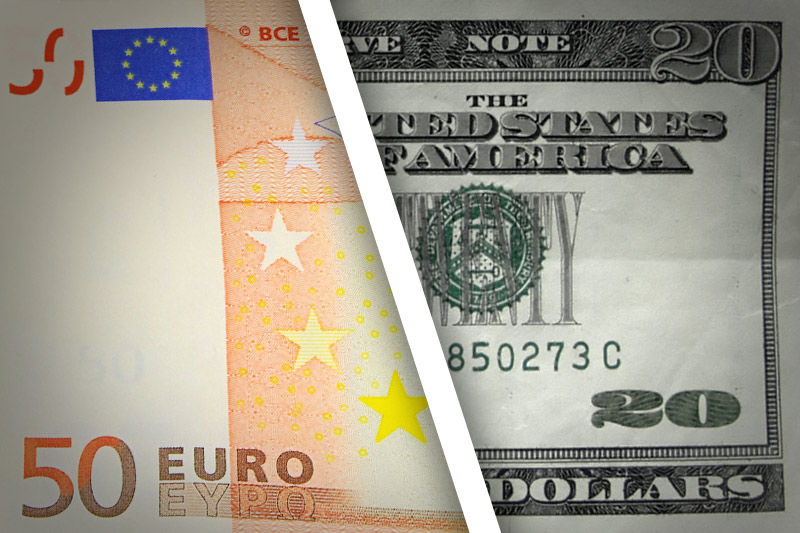Investing.com - The euro was trading close to session lows against the dollar on Tuesday as escalating geopolitical tensions between the U.S. and Syria bolstered safe haven demand.
EUR/USD hit 1.3325 during European afternoon trade, the lowest since August 22; the pair subsequently consolidated at 1.3333, shedding 0.27%.
The pair was likely to find support at 1.3200 and resistance at 1.3389, the session high.
Market sentiment was hit by fears that the U.S. is moving closer to launching military strikes against Syria after U.S. Secretary of State John Kerry said President Obama will hold Syria’s government accountable for using chemical weapons against civilians.
Meanwhile, concerns over how soon the Federal Reserve will start to reduce stimulus continued after data on Monday showed that U.S. durable goods orders fell more than expected last month.
The Commerce Department said U.S. durable goods orders dropped 7.3% in July, worse than expectations for a 4% decline. It was the largest drop since August 2012. The weak data raised doubts over the strength of the economic recovery.
The euro briefly touched intra-day highs earlier Tuesday after a report showed that the Ifo index of German business climate rose to a 16-month high of 107.5 in August from 106.2 in July. Economists had expected the index to tick up to 107.0.
The Current Assessment Index rose to 112.0 in August from 110.1 in July, compared to expectations for an increase to 110.9.
Elsewhere, the single currency was higher against the pound, with EUR/GBP climbing 0.21% to 0.8603, but was sharply lower against the broadly stronger yen, with EUR/JPY falling 1.22% to 130.08.
Investors were looking ahead to a report on U.S. house price inflation, as well as closely watched data on U.S. consumer confidence later Tuesday.
EUR/USD hit 1.3325 during European afternoon trade, the lowest since August 22; the pair subsequently consolidated at 1.3333, shedding 0.27%.
The pair was likely to find support at 1.3200 and resistance at 1.3389, the session high.
Market sentiment was hit by fears that the U.S. is moving closer to launching military strikes against Syria after U.S. Secretary of State John Kerry said President Obama will hold Syria’s government accountable for using chemical weapons against civilians.
Meanwhile, concerns over how soon the Federal Reserve will start to reduce stimulus continued after data on Monday showed that U.S. durable goods orders fell more than expected last month.
The Commerce Department said U.S. durable goods orders dropped 7.3% in July, worse than expectations for a 4% decline. It was the largest drop since August 2012. The weak data raised doubts over the strength of the economic recovery.
The euro briefly touched intra-day highs earlier Tuesday after a report showed that the Ifo index of German business climate rose to a 16-month high of 107.5 in August from 106.2 in July. Economists had expected the index to tick up to 107.0.
The Current Assessment Index rose to 112.0 in August from 110.1 in July, compared to expectations for an increase to 110.9.
Elsewhere, the single currency was higher against the pound, with EUR/GBP climbing 0.21% to 0.8603, but was sharply lower against the broadly stronger yen, with EUR/JPY falling 1.22% to 130.08.
Investors were looking ahead to a report on U.S. house price inflation, as well as closely watched data on U.S. consumer confidence later Tuesday.
